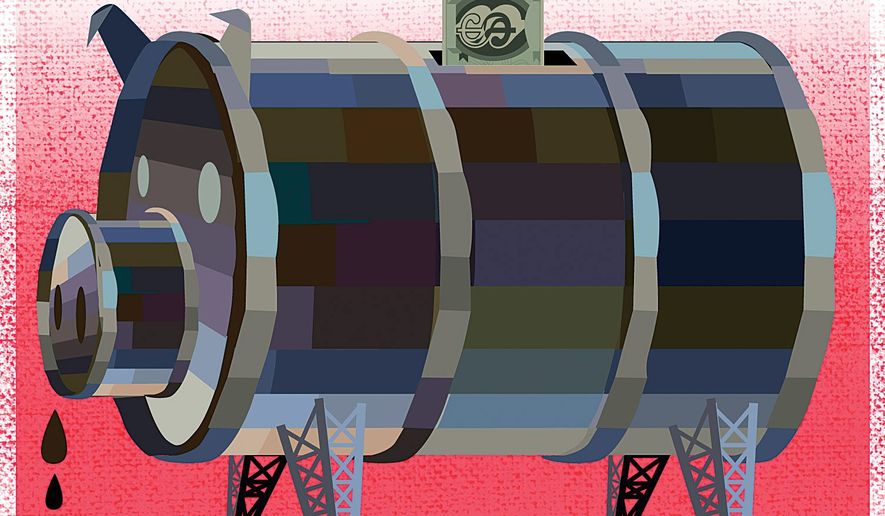OPINION:
As part of the new nuclear agreement, the Iranian energy industry will be allowed to export its oil.
If only America was so lucky.
Astonishingly, America is the only major crude oil country in the world with a self-imposed ban on exportation — a restriction that has been in place for more than 40 years. This outdated policy needlessly impedes production, distorts prices and kills jobs. It’s time for Congress to kill it.
To understand the ban, we have to travel all the way back to 1975, during the administration of Gerald Ford. The Organization of Petroleum Exporting Countries (OPEC), largely consisting of oil-rich Middle East nations, had colluded to drive up gas prices over the previous two years in retaliation for American saving Israel from annihilation in the Yom Kippur War.
Congress panicked. In desperation and under great pressure to “do something,” it responded by imposing this ban, which prohibited American firms from exporting oil anywhere but Canada. This rule was intended to protect the country from an unstable oil market, keep as much domestic oil as possible at home, and curb U.S. reliance on imports.
After a slight drop in oil importations at the end of the 1970s, they steadily inched up soon after.
Fast-forward 40 years, when only three congressman and a lone senator from 1975 remain in office. Thanks to the innovation of hydraulic fracturing (“fracking”) technology, which uses a mix of oil and sand to extract buried energy deposits, America is in the midst of an oil revolution. States like Texas and North Dakota have become world-class energy developers.
Today, the United States now produces more than 11 million barrels of oil a day — and that figure will likely climb up to 18 million by 2040. In terms of oil production, America is the new Saudi Arabia. And there is no similar export ban on natural gas, which is poised to make huge leaps in exports over the next decade.
We’re on our way to a domestic oil surplus. Thanks to the antiquated export ban, though, there is nowhere for that excess oil to go. An oil bottleneck is dragging down prices and curtailing production. In fact, American oil rigs have cut back on production by 50 percent over the last year.
Meanwhile, Iran is readying to re-enter the global oil market — with America’s blessing. Iran was the second-biggest OPEC oil producer before being hit with sanctions in 2012. Their mullah-controlled industry will produce about 1 million barrels of crude oil every 24 hours. And it intends to ship 500,000 barrels abroad every day.
It’s time for America to get involved in the international energy market. Lifting the ban will pump an estimated $23 billion into the U.S. economy and create 125,000 new jobs by 2030.
Thankfully, the Senate Energy Subcommittee recently passed a bill lifting the export ban. Next, it will have to pass a vote from the full Senate, where some legislators remain dubious.
They need not be. The oil export ban is an artifact from an era of which a majority of Americans have no memory: gasoline lines, oil shortages and embargoes. It’s hurting a vital national industry, costing countless jobs and limiting economic opportunity. Congress should lift its oil embargo on America immediately.
• Michael James Barton is the energy adviser at ARTIS Research. He previously served as the deputy director of Middle East policy at the Pentagon.




Please read our comment policy before commenting.